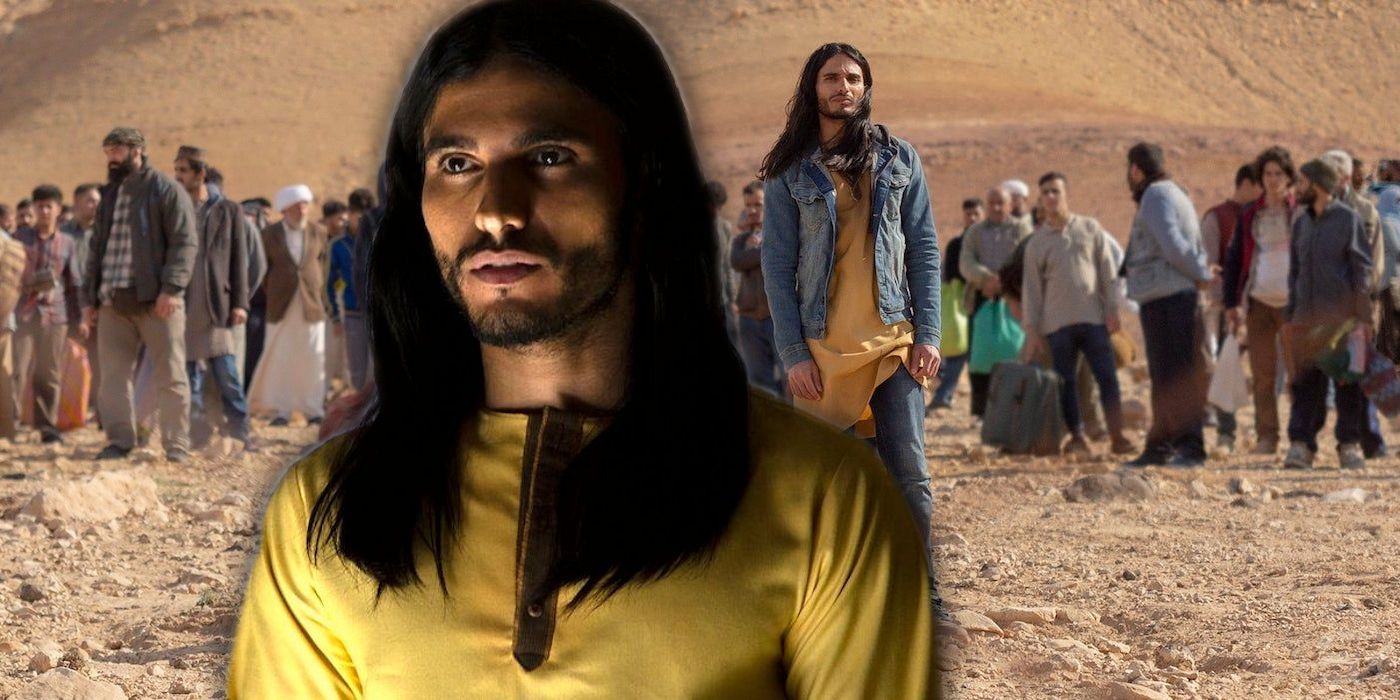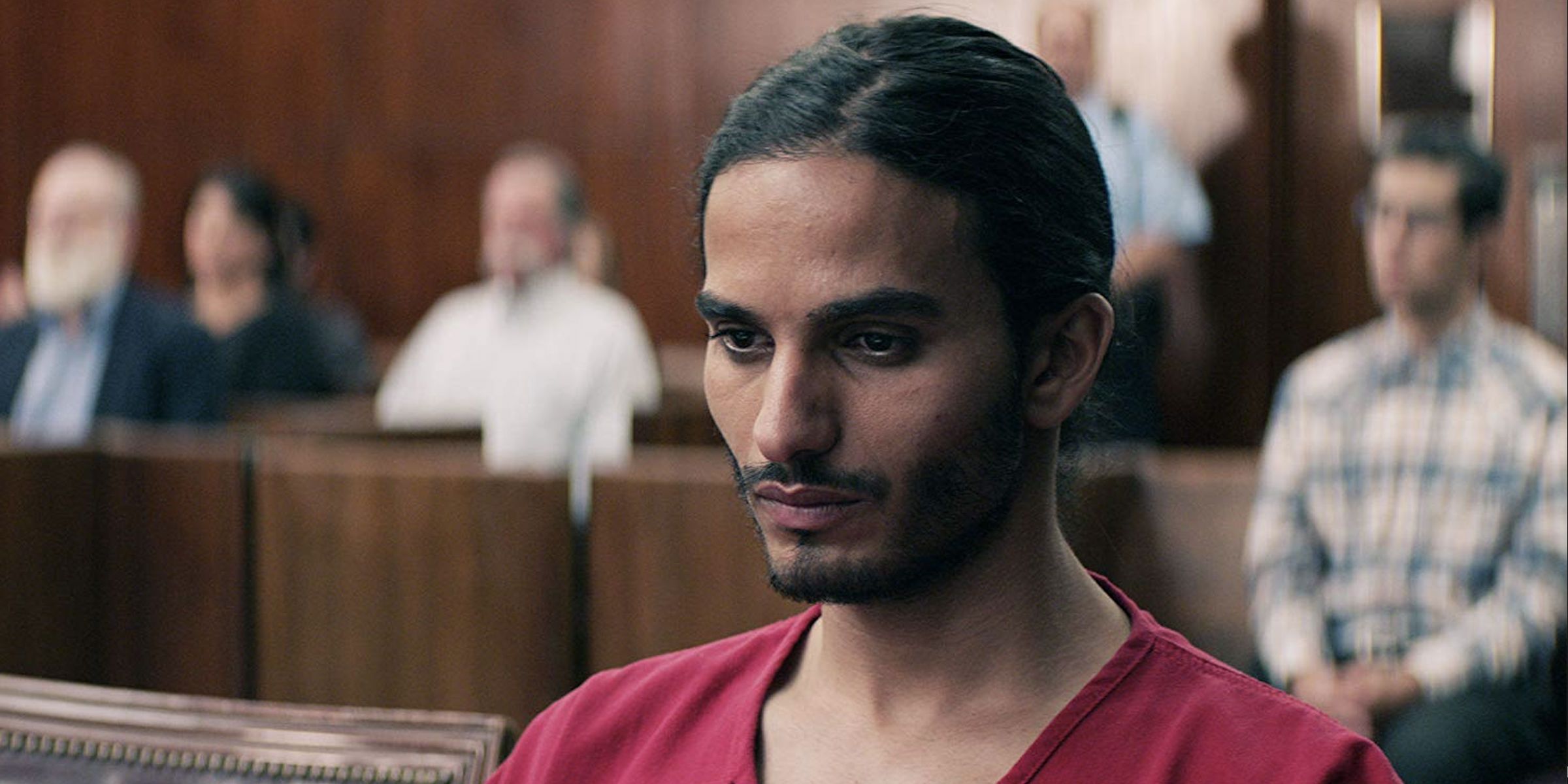WARNING: Spoilers for Messiah.
The Netflix series Messiah includes a major character twist that was originally teased, or spoiled, in the trailer. Still, Messiah season 1 left many viewers wondering about the deeper meaning of the misdirection, and how it will affect future episodes. Messiah was created by Michael Petroni, and released in January 2020.
Messiah’s central figure goes by the name Al-Masih. Portrayed by Belgian actor Mehdi Dehbi, he initially preaches to a crowd in Syria as a sandstorm takes over the city. Al-Masih then leads followers into the desert, while viral social media clips of his sermons reach CIA officer Eva Geller (Michelle Monaghan). The early episodes of Messiah season 1 reveal that Al-Masih has the extraordinary ability to emotionally connect with people, both on a large scale and during face-to-face conversations. When he re-emerges in the American South and gains new followers, Geller experiences Al-Masih's oratorical brilliance up-close-and-personal. Only she doesn’t buy the hype, and fully commits to deconstructing the man, the myth, the legend - someone she believes to be a false prophet.
Messiah season 1 doesn’t reveal if Al-Masih is the Second Coming of Jesus or the Antichrist. However, the character’s name implies that he just may be the latter, as the Islamic figure Al-Masih ad-Dajjal is indeed known to be a false Messiah. For dramatic purposes, Netflix’s Messiah focuses primarily on creating doubt, and does this by revealing details about the central character's backstory. Geller discovers that Al-Masih’s real name is Payam Golshiri, and that he was raised to be a magician by his father in Iran - a way to earn quick money. Golshiri has presumably spent time in psychiatric facilities as well, thus calling into question his frame of mind and motivations.
Beyond the background evidence, which the Messiah in question corroborates, Golshiri is also connected to cyber terrorist Oscar Wallace (Christopher Heyerdahl). Geller discovers they met at an American university, and later manages to track down Wallace to question him about the supposed Messiah. It’s then revealed that Golshiri, aka Al-Masih, isn’t a hand-picked Wallace follower, but rather a potentially violent leader. Between Golshiri’s magician background, public miracles, and ability to manipulate each and every situation to his advantage, he naturally appears to be a conman looking for attention. But Messiah season 1 creates even more doubt with its cryptic finale.
The entirety of Messiah season 1 focuses on creating doubt about Al-Masih's motivations, and building up faith about his Syrian protege, Jibril Medina (Sayyid El Alami), possibly being the true Messiah. The proverbial narrative wrench arrives in the Messiah season 1 finale through Aviram Dahan (Tomer Sisley), a man who's consistently reminded of the past by Al-Masih. During a flight, the supposed Messiah challenges Aviram's beliefs once again, and the aftermath of a plane crash theoretically destroys the idea that Golshiri is merely a fraud; a magician trying to orchestrate an international hoax. Not only does Al-Masih survive the crash, but he seemingly raises Aviram (and another man) from the dead, at least according to a first responder named Malik ("You were dead. He raised you!"). Messiah season 1 ultimately asks viewers to trust what they see and know to be true. In reality, however, the plane crash and first reactions could very well have been designed by Al-Masih; a way to inspire through magic. Or maybe he's indeed the Messiah, a misunderstood man pushed to extremes. The story balancing act creates all the appropriate suspense for Messiah season 2 on Netflix.


